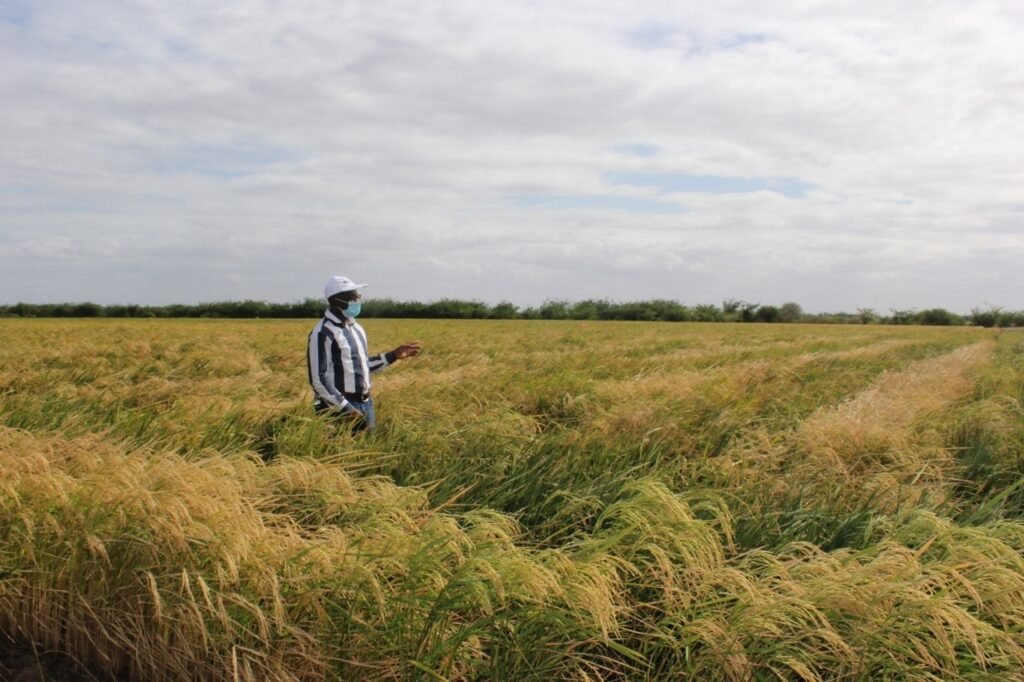By Dr Vitumbiko Chinoko
AS Africa faces the pressing challenges of climate change, the continent is increasingly turning to agricultural innovations to overcome these hurdles. The agricultural sector stands to benefit significantly from advanced technology, particularly agricultural biotechnology.
This innovation is not only expected to bolster food security but also position Africa as a major player in global food exports. Since its inception in 2006, the Open Forum on Agricultural Biotechnology (OFAB) has been at the forefront of disseminating information on agricultural biotechnology. This initiative aims to transform African agriculture by providing tools that enable the continent to feed itself and even become a net food exporter.
Public perception and misconceptions about agricultural biotechnology necessitate a clear understanding of what it entails. Essentially, agricultural biotechnology involves using scientific techniques based on DNA knowledge to enhance crops and livestock in ways that conventional breeding cannot achieve. This technology improves plants, animals, or microorganisms to develop desirable traits, proving particularly useful in agriculture, industry, and medicine. Experts agree that public attitudes towards agricultural biotechnology are largely shaped by social environments and mass media.
OFAB seeks to leverage the media’s influence to foster public awareness and inspire informed dialogues about innovative technologies. Accurate and accessible scientific information can significantly impact public perception and acceptance of agricultural biotechnology The potential of agricultural biotechnology to advance crop and livestock production, enhance productivity, and improve food security is immense. These goals align with the African Union’s Agenda 2063, particularly its first aspiration for a prosperous Africa based on inclusive growth and sustainable development.
This vision calls for investment in modern agriculture to increase productivity and exploit the continent’s vast land and ocean resources.
Addressing climate issues and other environmental challenges is crucial for the agricultural sector. Agricultural biotechnology can play a critical role in promoting food security and climate resilience. Sub-Saharan Africa, in particular, faces food security challenges that require scientific interventions, including the adoption of resilient seeds to combat drought, pests, and diseases. Agricultural biotechnology should be central to these discussions.
OFAB’s vision for sustainable food security and agriculture-driven economic development in Africa recognises the importance of agricultural biotechnology. By providing a platform for stakeholders to discuss and share innovations, OFAB helps farmers boost productivity and adapt to changing environmental conditions. Advocacy and information sharing have led to a more informed society regarding the benefits of agricultural biotechnology.
Celebrating scientific advancements and fostering strong, meaningful partnerships are crucial for driving policies and resilience, contributing significantly to Africa’s Agenda 2063. However, a critical question remains: what is wrong with our food systems? Despite the ongoing discussions, we have not fully utilised the broad array of approaches available to tackle food security. We have left some tools in the toolbox, particularly agricultural biotechnology, which is essential for achieving food security amidst climate change challenges. While there is a global scientific consensus on the advantages of agricultural biotechnology, building trust and bridging the gap between technology and its acceptance is imperative.
In the face of a rapidly growing population, declining agricultural productivity, climate change and reduced resources available for agricultural research, policymakers are pressed to make the right decisions and are looking for guidance. The OFAB Project facilitates constructive conversations among key stakeholders and decision-makers on agricultural biotechnology.
For both policymakers and the larger public, OFAB facilitates quality engagements and conversations on the safety and benefits of modern biotechnology. The project by AATF, is being implemented in ten African countries—Kenya, Uganda, Tanzania, Nigeria, Ghana, Burkina Faso, Ethiopia, Mozambique, Malawi and Rwanda, OFAB hosts annual media awards to recognise journalists who cover agricultural biotechnology. Despite training students in agricultural biotechnology, there is often a reluctance to embrace the products derived from these innovations.
Science reporting has helped integrate agricultural biotechnology into the development narrative, but there is still much work to be done to achieve Agenda 2063 without fully incorporating biotechnology into food systems. The Africa Union’s Agenda 2063 highlights the commercialization of genetically modified (GM) products and the need for knowledge sharing among stakeholders. A shared vision is essential for advancing agricultural biotechnology.
Platforms like OFAB bring science to policymakers and provide journalists with reliable sources for their reporting. Originating in Kenya and spreading to six other African countries, OFAB hosts annual media awards to recognise journalists who cover agricultural biotechnology. OFAB is now in 10 African countries.
Dr Vitumbiko Chinoko is Project Manager, Open Forum on Agricultural Biotechnology (OFAB) at African Agricultural Technology Foundation (AATF)

